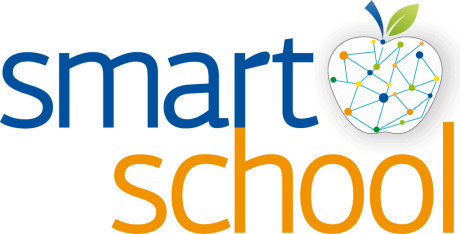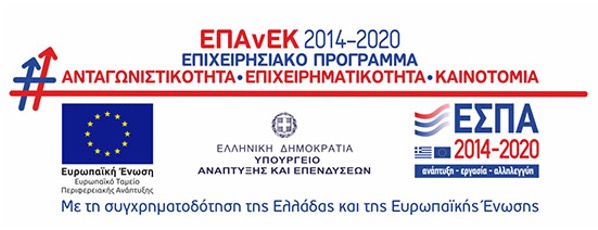Goethe Certificate A1: Fit in Deutsch 1
The test is aimed at children and adolescents aged 10 to 16 years. It certifies simple, basic language skills and corresponds to the first level (A1) of the Common European Framework of Reference for Languages (GEFR) six-level language proficiency scale.
YOU PROVE THAT YOU CAN …
- to ask simple questions and requests and answer accordingly.
- write, using simple sentences and expressions, a few things about yourself and others.
- to understand conversations and texts that refer to topics familiar to you.
Goethe Certificate A2: Fit in Deutsch
The test is aimed at adolescents aged 12 to 16 years. It certifies basic language skills and corresponds to the second level (A2) of the six-level scale of language proficiency of the Common European Framework of Reference for Languages (GER).
YOU PROVE THAT YOU CAN …
- comprehend and use sentences and standard expressions in everyday situations.
- agreed in the context of simple, very common circumstances, in which you exchange information on familiar and common issues.
- you provide, with simple structures, basic information about your background and education, your immediate environment and issues related to your immediate needs.
Goethe Certificate A1: Start Deutsch 1
The test is aimed at adults. It certifies simple, basic language skills and corresponds to the first level (A1) of the six-level language proficiency scale of the Common European Framework of Reference for Languages (GER).
PROVE THAT YOU CAN …
- communicate in a simple way, provided that your interlocutor speaks slowly and clearly.
- understand and use familiar, everyday, frequent expressions and simple sentences (eg information about you and your family, about shopping and shopping, about your job, about your area).
- introduce yourself and other people and ask them for information about them – such as where they live, what people they know or what they have.
Goethe Certificate A2
The test is aimed at adults. Assumes basic language skills and corresponds to the second level (A2) of the Six Levels of Language Proficiency Scale of the Common European Framework of Reference for Languages (GER)
PROVE THAT YOU CAN …
- understand and use sentences and frequent expressions in everyday situations.
- communicate in simple, ordinary circumstances and exchange information on familiar or everyday issues.
- describe in a simple way your origin and education, the area in which you live and items related to your immediate needs.
Goethe Certificate B1
The Goethe-Zertifikat B1 test is intended for adolescents and adults.
- The Goethe-Zertifikat B1 test for teens is recommended for candidates who have reached the age of 12.
- The Goethe-Zertifikat B1 examination for adults is recommended for candidates who have reached the age of 16.
It characterizes the language user as independent and corresponds to the third level (B1) of the six-level scale of language proficiency of the Common European Framework of Reference for Languages (GER).
PROVE THAT YOU CAN …
- to understand the main points of oral speech that is pronounced clearly and with the pronunciation of the official language and concerns relevant issues related to work, school, leisure, etc.
- to deal with most of the communication situations that arise during trips to German-speaking countries.
- express yourself simply and bluntly on familiar topics and personal areas of interest.
- narrate experiences and events, describe dreams, hopes and goals and give brief explanations and explanations.
Goethe-Certificate B2
The Goethe-Zertifikat B2 is a German exam for teens and adults.
It certifies advanced knowledge and corresponds to the fourth level (B2) of the six-level scale of the Common European Framework of Reference for Languages (GER).
PROVE THAT YOU CAN …
- to understand the basic meanings of complex texts on specific and abstract topics and scientific discussions in your field.
- to express yourself orally with spontaneity and ease, so that it is possible, without much effort on both sides, the conversation with a native speaker.
- to express yourself on a wide range of topics in a clear and detailed way, to formulate your positions on a topical issue and to list the advantages and disadvantages of different possibilities.
State Graduate Certificate of Language Proficiency (CPG)
LEVEL B (B1-B2)
The examination system for the State Certificate of Language Proficiency (KPG), although aimed at Greek-speaking people, has a European orientation and adopts the principles set by the Council of Europe (CoE) and the European Commission (EU).
- The total of the questions of each single graded test allows to secure 200 credits, half of which come from questions of the lowest level of difficulty (C1) and the rest from questions of the highest level of difficulty (C2).
- Examiners who obtain a score from 60 to 119 are awarded a B1 certificate
- Examiners who obtain a score from 120 to 200 credits are awarded a B2 certificate, provided they have obtained a score equal to or greater than the following: First module 15 credits, second module 18 credits and third module 15 credits.
The examination that the candidate submits to be certified is of two types, depending on his / her age.
- Test for people aged 10 to 15 years
- Test for people 16 years and older.
Goethe-Certificate C1
The Goethe-Zertifikat C1 test is intended for adults. It certifies knowledge at a very advanced level and corresponds to the fifth level (C1) of the six-level language proficiency scale of the Common European Framework of Reference for Languages (GER).
PROVE THAT YOU CAN …
- understand a wide range of demanding long texts and even comprehend the implied meanings.
- to express yourself spontaneously and easily without having to search for words.
- use language effectively and flexibly in your social and professional life or in your education and studies.
- to articulate your views extensively on complex issues, using clear and well-structured discourse.
Goethe Certificate C2: Großes Deutsches Sprachdiplom
The test is aimed at adults. It certifies excellent knowledge and corresponds to the sixth level (C2) of the six-level language proficiency scale of the Common European Framework of Reference for Languages (GER).
PROVE THAT YOU CAN …
- to understand without difficulty everything you read and hear in German.
- summarize information from a variety of written and oral sources and provide consistent justifications and explanations.
- express yourself spontaneously, easily and accurately and formulate subtle semantic nuances, even when it comes to complex issues.
The Goethe-Zertifikat C2: Großes Deutsches Sprachdiplom enables foreign prospective students to be admitted to German universities and colleges. In many places it is recognized as a language proficiency certificate that gives its holders the right to learn German.
The examination is recognized by the German L .nder as a certificate of competency in teaching. Relevant information is provided by the recognition bodies in the respective states, such as: Ministries of Culture, Education and Training, Teacher Training Service, Regional Government and Senate Administration.
On 01-01-2012 the certificate Goethe-Zertifikat C2: Großes Deutsches Sprachdiplom replaced the certificates: Goethe-Zertifikat: Zentrale Oberstufenprüfung (ZOP), Kleines Deutsches Sprachdiplom (KDS) and Großes Deutsches Sprachdra.
State Graduate Certificate of Language Proficiency (CPG)
LEVEL C (C1-C2)
- The total of the questions of each single graded test allows to secure 200 credits, half of which come from questions of the lowest level of difficulty (C1) and the rest from questions of the highest level of difficulty (C2).
- Subjects who obtain a score from 60 to 119 are awarded a C1 certificate
- Examiners who obtain a score from 120 to 200 credits are awarded a C2 certificate, provided they have obtained a score equal to or greater than the following: First module 15 credits, second module 18 credits and third module 15 credits.
The examination that the candidate submits to be certified is of two types, depending on his / her age.
- Test for people aged 10 to 15 years
- Test for people 16 years and older.



